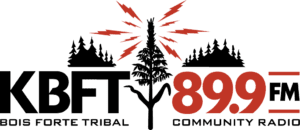Dr. Julia Coates serves as an at-large council member of rhte Cherokee Nation. Courtesy photo
We represent approximately 320,000 citizens of the Cherokee Nation. Progress for at-large citizens has been the result of decades of advocacy by various leaders and Cherokees at the grassroots level. Although there is still more work to do, the progress made in recent years is significant.
It is important to acknowledge a basic challenge for the Cherokee Nation’s government in serving its at-large citizens. Although the Cherokee Nation’s budget has grown due to increased revenue from tribal businesses, a majority of the funding comes from federal programs.
The federal government has a trust obligation to the Cherokee Nation, which includes funding for certain programs and services. Often, these federal funds, which meet only a fraction of the need, are tied to investments within the reservation, such as infrastructure, or benefits tied to residency, such as housing.
Even with federal red tape holding back benefits for at-large citizens, Cherokee leaders are increasingly using the tribe’s general fund revenue — mostly from money generated by tribal businesses — to support at-large citizens. Examples abound.
Today, more Cherokees receive college scholarships than ever. Legislation we sponsored earlier this year increased the scholarships and locked in special funding for Cherokee citizens. This semester alone, over 1,300 Cherokee students are attending college on a Cherokee scholarship.
Johnny Jack Kidwell serves as an at-large council member of rhte Cherokee Nation. Courtesy photo
Limits within education programs — such as income — remain. However, we plan to eliminate these restrictions as our business revenues increase. We are also working toward expanding career pathways for Cherokees to “come home” and serve their tribe after completing their educational goals. The new College Intern program, which is open to at-large citizens, is just one example.
We are seizing opportunities to improve at-large access to health care. In recent years, the hearing aid and eyeglasses programs for Cherokees expanded. Our new Patient Experience Team was hired specifically to assist at-large citizens by helping them connect with health care resources and by facilitating appointments for those who can travel to our state-of-the-art health facilities. We also see a future in which telemedicine is accessible to at-large citizens, and we are working tirelessly toward that vision.
Cherokee Nation recently secured $86 million in federal small business loan assistance. We worked with Principal Chief Chuck Hoskin Jr. and Deputy Chief Bryan Warner to ensure that all citizens had access to these funds. Chief Hoskin recently announced a July 2025 target for including all citizens in the program.
Every Cherokee can play a role in revitalizing our language, preserving our shared culture, learning our history, and organizing socially. We live in a time where at-large Cherokees have the support and encouragement to participate in those efforts, including through our Community and Cultural Outreach department.
At-large community organizing is nothing new, but those efforts are getting a boost. The budget that the Council of the Cherokee Nation approved in September includes new funding for all 26 at-large community organizations to fund their own wellness initiatives. The Gadugi Corps program, enacted by the Council earlier in the year, is bringing at-large Cherokees home to improve communities within the reservation. At-large community organizations are also hosting new language and history courses.
At-large Cherokees are stepping up their civic action. At-large voters cast over 3,600 votes in the 2023 general election and continue to register to vote at every at-large gathering. At-large Cherokees use the “citizen action” page on the tribe’s Cherokee.org website and visit CherokeeDelegate.com to help advance Cherokee Nation policies. They also stay connected at CherokeesAtLarge.org and our social media platforms.
We are proud of how well we work together and enjoy ample support from our colleagues on the Council. Through cooperation and collaboration, the old Council view of “us versus them” has given way to a stronger sense of “we are all Cherokee, no matter where we live.” There are numerous examples of this cooperative spirit not just between us and the rest of the Council but also between the Council and the Executive Branch.
Without question, today there are more resources and opportunities flowing to citizens at large, as well as better outreach, than at any other time in history. We are on the right track.
Nonetheless, although we have made progress, there remains significant work ahead. For us, it transcends mere figures on a budget spreadsheet. It represents a genuine sense of “gadugi,” free from geographical barriers. Our nation grows stronger when Cherokee citizens, wherever they are, actively participate in their tribe on all levels.
We invite you all to follow us on our social media platforms so we can better keep you updated on our efforts to represent you on the Council: Dr. Julia Coates, facebook.com/CouncilorJuliaCoates, and Johnny Jack Kidwell, linktr.ee/johnnyjkidwell.


